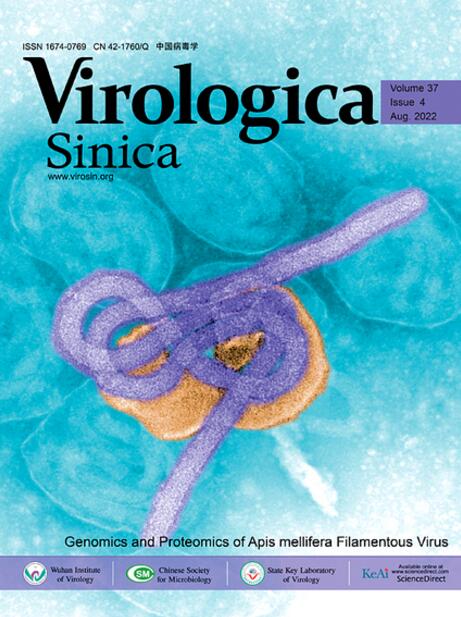单细胞 RNA 测序揭示了生殖器疱疹免疫景观反应的多样性。
IF 5.5
3区 医学
Q1 Medicine
引用次数: 0
摘要
生殖器疱疹(GH)是一种常见的性传播疾病,主要由单纯疱疹病毒 2 型(HSV-2)引起,一直是全球关注的健康问题。尽管我们对 GH 患者免疫细胞群的改变和免疫调节的了解还很有限,但全身固有免疫、先天免疫和适应性免疫显然在 HSV-2 感染和 GH 再激活过程中发挥着至关重要的作用。为了研究 HSV-2 感染和复发的机制,研究人员对从健康人和复发性 GH 患者外周血中分离出的免疫细胞进行了单细胞 RNA 测序(scRNA-seq)。此外,复发性 GH 患者的全身免疫反应显示经典单核细胞、CD4+ T 细胞、自然杀伤细胞(NK 细胞)和浆细胞树突状细胞(pDCs)被激活,尤其是与 Toll 样受体信号通路和 T 细胞激活相关的基因被激活。无论是在 scRNA-Seq 数据集中,还是在独立的定量实时聚合酶链反应(qRT-PCR)分析和酶联免疫吸附试验中,GH 患者的循环免疫细胞都显示出与炎症和抗病毒反应相关的基因表达较高。这项研究表明,HSV 再激活导致的局部生殖器疱疹可能会影响循环免疫细胞的功能,这为今后研究 HSV 感染和复发过程中全身免疫的作用提供了潜在的途径。本文章由计算机程序翻译,如有差异,请以英文原文为准。
Single-cell RNA sequencing reveals the diversity of the immunological landscape response to genital herpes
Genital herpes (GH) is a common sexually transmitted disease, which is primarily caused by herpes simplex virus type 2 (HSV-2), and continues to be a global health concern. Although our understanding of the alterations in immune cell populations and immunomodulation in GH patients is still limited, it is evident that systemic intrinsic immunity, innate immunity, and adaptive immunity play crucial roles during HSV-2 infection and GH reactivation. To investigate the mechanisms underlying HSV-2 infection and recurrence, single-cell RNA sequencing (scRNA-seq) was performed on immune cells isolated from the peripheral blood of both healthy individuals and patients with recurrent GH. Furthermore, the systemic immune response in patients with recurrent GH showed activation of classical monocytes, CD4+ T cells, natural killer cells (NK cells), and plasmacytoid dendritic cells (pDCs), especially of genes associated with the Toll-like receptor signaling pathway and T cell activation. Circulating immune cells in GH patients show higher expression of genes associated with inflammation and antiviral responses both in the scRNA-Seq data set and in independent quantitative real-time polymerase chain reaction (qRT-PCR) analysis and ELISA experiments. This study demonstrated that localized genital herpes, resulting from HSV reactivation, may influence the functionality of circulating immune cells, suggesting a potential avenue for future research into the role of systemic immunity during HSV infection and recurrence.
求助全文
通过发布文献求助,成功后即可免费获取论文全文。
去求助
来源期刊

Virologica Sinica
Biochemistry, Genetics and Molecular Biology-Molecular Medicine
CiteScore
7.70
自引率
1.80%
发文量
3149
期刊介绍:
Virologica Sinica is an international journal which aims at presenting the cutting-edge research on viruses all over the world. The journal publishes peer-reviewed original research articles, reviews, and letters to the editor, to encompass the latest developments in all branches of virology, including research on animal, plant and microbe viruses. The journal welcomes articles on virus discovery and characterization, viral epidemiology, viral pathogenesis, virus-host interaction, vaccine development, antiviral agents and therapies, and virus related bio-techniques. Virologica Sinica, the official journal of Chinese Society for Microbiology, will serve as a platform for the communication and exchange of academic information and ideas in an international context.
Electronic ISSN: 1995-820X; Print ISSN: 1674-0769
 求助内容:
求助内容: 应助结果提醒方式:
应助结果提醒方式:


